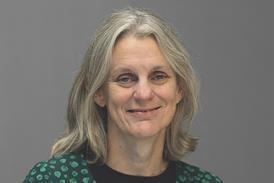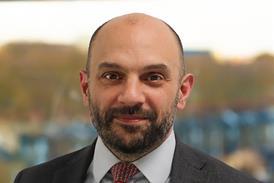More than 400 Colombian lawyers have been murdered since 1991 but no one has been prosecuted for a single killing, a devastating report from 42 British lawyers who visited Colombia last year has revealed.
Colombian human rights lawyer Alirio Uribe, in London for the launch of the report today, told the Gazette there are four million displaced people in his country – or 9% of the population. Some 13,000 civilians have been killed in the last six years, including indigenous peoples, journalists, trade unionists and judges. About 25,000 people have ‘disappeared’, and thousands more arbitrarily detained or kidnapped by guerrillas or criminals for ransom.
Uribe said: ‘There were 40 lawyers killed last year alone. They were persecuted because they were associated with the "crimes" or sympathies of their clients. If they are willing to defend them, the logic goes, then they must be fellow travellers.’
Uribe also described illegal telephone taps on judges of the supreme court, human rights lawyers, non-governmental organisations, community leaders and others who stand up for justice.
British lawyers helped compile the report. They were part of an international delegation of 70 lawyers who visited Colombia in August 2008 to document the threats, assaults, disappearances and killings that make up the daily life of human rights advocates in that country. The delegation also questioned the failure of the Colombian authorities to investigate these crimes.
The delegation – the Caravana Internacional de Juristas – met victims’ groups, judges, police officers, prosecutors and government ministers, among others.
Colombian human rights defender and Law Society Council member Sara Chandler said: ‘The courage of the Colombian lawyers has left a lasting impact on us all. We heard shocking and detailed eyewitness accounts of harassment and attacks. During our visit, a lawyer was murdered in one of the regions we were investigating’.
Chandler added that 2,700 trade unionists have also been murdered since 1986, along with teachers, health service employees and workers in the petroleum and palm oil industries.
- The report can be read at http://international.lawsociety.org.uk/node/2518



























No comments yet